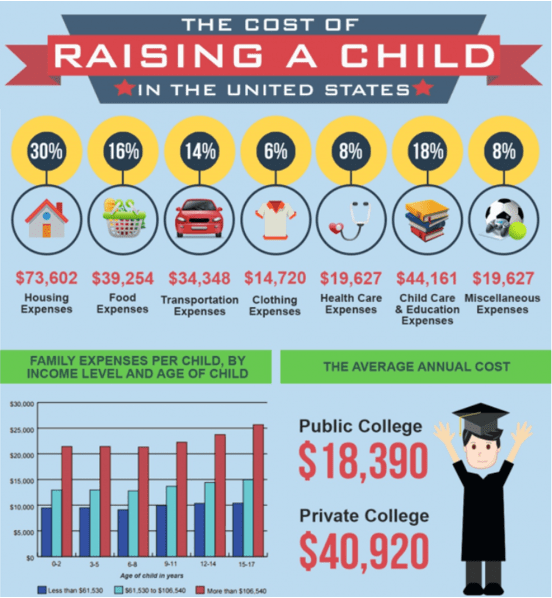How Much House Can You Afford Today?
When it comes to buying a home, affordability is much more complicated than simply finding out how much you can borrow.
You’ll also have to take into consideration additional affordability factors, like the up-front costs of purchasing a home and your overall financial wellness.
To start exploring how much house you can afford, take factors like location, household income, down payment, and monthly debt into account when budgeting for a monthly mortgage payment.
Mortgage Payments (How Much House Can You Afford)
Your maximum mortgage payment should not be higher than 28 percent of your monthly income, which should include related expenses like principal, interest, taxes, insurance, and even HOA fees.
While the terms of your mortgage will play a role in determining monthly costs, the interest rate will be the biggest factor in whether your mortgage payments are affordable.
There are a few factors that influence mortgage interest rates, including:
Credit Score (How Much House Can You Afford)
Just like any other loan, your credit score is used as a benchmark for reliability. If you have a high credit score, lenders see that as proof of reliability and will offer lower interest rates as a result.
On the other hand, a low credit score is problematic for lenders, since it raises doubts on whether they can trust you to pay off your loan.
While you are exploring how much house you can afford, you should also take the time to look over your credit score with a fine-toothed comb. Look for ways to boost your score through paying off any old debts or resolving errors before you start applying for mortgages.
Location (How Much House Can You Afford)
The location of your home could make a difference in your interest rate, since lenders may have varying rates on a state-by-state basis.
There may also be differences when purchasing a home in an urban vs. rural area, so make sure that you take note of the location and use a home affordability calculator that allows for that data.
Down Payment (How Much House Can You Afford)
Putting aside more money for a down payment certainly isn’t fun, but it’s a great way to boost your chances of getting a lower rate, and affording that house. According to Bankrate, most lenders require a payment of at least 3 percent.
Although lenders may allow for low down payments, the best way to save yourself from additional long-term costs—like mortgage insurance—is to put 20 percent down.
Current Texas Mortgage Rates & Loans for Great Credit
Mortgage Rates for Houston Borrowers with Good Credit
Best CD Rates in NY for Good & Great Credit | 2017 Rates
Up-Front Costs of Purchasing a Home (How Much House Can You Afford)
Once you have decided how much you can afford to pay each month for a mortgage loan, you’ll also want to consider the additional costs that come within the first stages of homeownership.
Before you even start the application process, you’ll want to consider the following costs:
- Mortgage application fees (typically 1-2 percent of the total purchase price)
- “Good faith deposit” (helps the seller know that you intend to buy)
- Down payment (20 percent of the total mortgage)
There are also closing costs to consider, which can include a wide range of expenses from:
- Mortgage points
- Attorney’s fees
- Inspections or surveys
- Title insurance
- Escrow deposit
- City recording fees
Current Mortgage Rates in Mississippi | MS Mortgage Rates for Good-Excellent Credit Borrowers
Current Mortgage Rates in Connecticut | Best CT Mortgage Rates for Good-Excellent Credit Borrowers
Today’s Oregon Mortgage Rates | Oregon Home Loans for Good-Excellent Credit Borrowers
Managing Your Finances (How Much House Can You Afford)
Part of determining whether buying a house is affordable means taking a look at your current finances, identifying weak spots, and finding ways to improve.
Most new homeowners don’t have tens of thousands of dollars in excess cash to apply towards a new home, so it’s important to make sure that your mortgage payment won’t break the bank, so to speak.
To set yourself up for success when adding a mortgage to your expenses, you may want to consider the following:
Use Budgeting Tools (How Much House Can You Afford)
Free budgeting tools—like those from Mint and Personal Capital—will take your monthly expenditures and sort them into categories like food, restaurants, bars, and entertainment.
This is a great way to find ways to cut back on overspending and learn how to create a manageable budget. The money that you save on non-essentials—like dining out or going to the movies—can be applied towards your mortgage payment instead.
Earn Additional Income (How Much House Can You Afford)
While it may not be an ideal method, earning additional income is a surefire way to increase your financial stability and make owning a home more affordable.
There are plenty of options for stay-at-home jobs to consider, or you can pick up a part-time job on the weekends to supplement your full-time income.
Make a commitment to apply any additional income towards your mortgage, and you will find that owning a home becomes much more affordable.
Sign up for an Automated Savings Plan (How Much House Can You Afford)
Unless you are one of the few who already have a regular savings routine, you may want to consider signing up for an automated savings plan. Luckily, many financial institutions have savings plans that will automatically transfer funds on a regular basis.
For example, the Way2Save® Savings Account from Wells Fargo will automatically transfer $1 every time you:
- Use your debit card for purchases
- Use Bill Pay
- Make automatic payments
You can also choose to have $25 transferred automatically each month to build up your savings.
Signing up for an automated savings plan like what Wells Fargo offers can be an easy and convenient way to relieve the stress of mortgage payments and increase the affordability of owning a home.
Current Kentucky Mortgage Rates | Kentucky Home Loans for Good-Excellent Credit Borrowers
Current Mortgage Rates in Alaska | Home Loans in Alaska for Good-Excellent Credit Borrowers
AdvisoryHQ (AHQ) Disclaimer:
Reasonable efforts have been made by AdvisoryHQ to present accurate information, however all info is presented without warranty. Review AdvisoryHQ’s Terms for details. Also review each firm’s site for the most updated data, rates and info.
Note: Firms and products, including the one(s) reviewed above, may be AdvisoryHQ's affiliates. Click to view AdvisoryHQ's advertiser disclosures.





